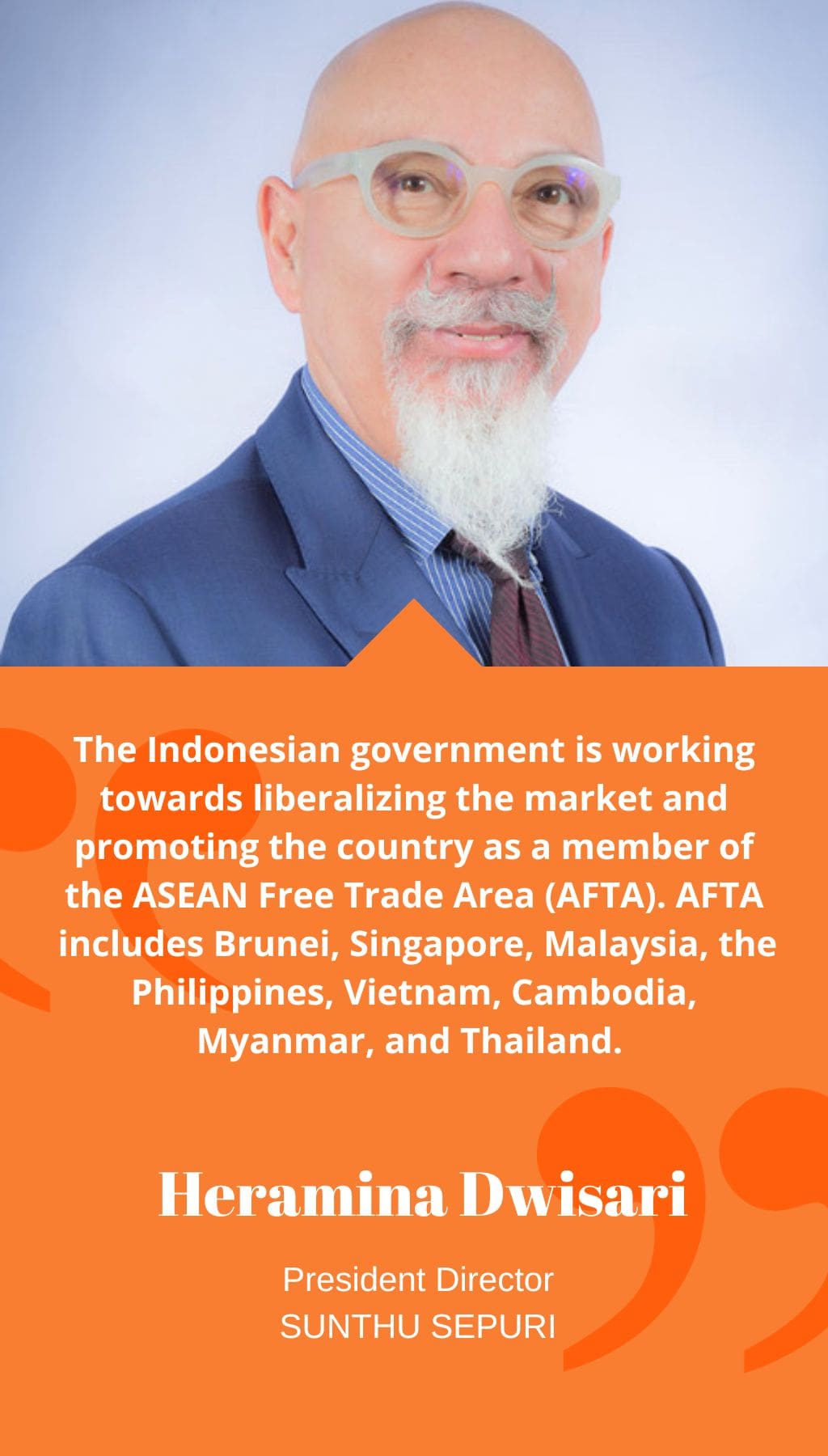
- Indonesia | 10 July 2015

Can you provide a brief background of Sunthi Sepuri?
Sunthi Sepuri was established in 1988 specifically for a government project focused on family planning. This marked our entry into the pharmaceutical industry, and since then, we have expanded our manufacturing capabilities to include various pharmaceutical products. Despite the expansion, our primary product line still revolves around family planning.
How did Sunthi Sepuri enter the manufacturing business?
In the 1980s, there was a pressing need for pharmaceutical companies to assist with manufacturing family planning products, as it was a concern for President Suharto. Indonesia was recognized by the United Nations for its successful family planning efforts, creating a high demand for such products. In response to this demand, Sunthi Sepuri emerged and now operates numerous manufacturing companies.
What does the competitive landscape look like for Sunthi Sepuri in the Indonesian market?
In the regular market, Sunthi Sepuri holds the second position for pregnancy pills, placing us among the top three companies in this segment. Our product portfolio includes gynecology and family planning, neurological, psychiatric, and weight management drugs. We have observed an increasing demand for weight management drugs and have a competitive advantage as we are the sole provider of such drugs in the market.
Can you provide more information about Sunthi Sepuri’s partnership with Wyeth?
Sunthi Sepuri has a strong international partnership with Wyeth. As a reliable and robust local company, Wyeth approached us to manufacture and distribute their products in the Indonesian market, considering its larger size compared to other countries. We currently manufacture and distribute drugs for Wyeth locally, and we anticipate this partnership to continue in the future.
Is it common for local Indonesian players to form partnerships with international companies to establish a stronger position in the market?
Yes, this trend emerged in the 1980s. Many players in the Indonesian market form partnerships with international companies not only for financial support but also to enhance the quality standards of their products and gain a stronger foothold in the domestic market.
What are some of Sunthi Sepuri’s strengths that make the company an attractive partner for international collaborations?
Sunthi Sepuri’s core focus on family planning sets us apart. We have expanded our company and developed a diverse range of products to assist customers in making informed choices. Our commitment to quality is another distinguishing factor. We constantly strive for customer satisfaction and implement continuous quality improvements. Sunthi Sepuri has received various awards and certifications, including the ISO certificate, the SGS International for customer satisfaction, and certificates for continual improvement and quality improvement systems.
How does Sunthi Sepuri’s pricing system compare to that of competitors, and how does exporting factor into this?
Sunthi Sepuri’s pricing system for manufacturing is more complex compared to other manufacturers. We are actively trying to expand our export market for our complete product line. Currently, we export to Vietnam, Cambodia, Myanmar, and Hong Kong. We are targeting several countries and seeking international partnerships to support our export endeavors.
What certifications and permissions does Sunthi Sepuri hold?
Sunthi Sepuri holds the International Organization for Standardization (ISO) certification. While we are not currently aiming for U.S. FDA approval, our strategic focus lies within Asia, where rapidly growing markets offer opportunities for further pharmaceutical provisions.
What bureaucratic consequences does Sunthi Sepuri face in Indonesia?
The Indonesian government is working towards liberalizing the market and promoting the country as a member of the ASEAN Free Trade Area (AFTA). AFTA includes Brunei, Singapore, Malaysia, the Philippines, Vietnam, Cambodia, Myanmar, and Thailand. Being part of AFTA gives these countries a competitive advantage as a global manufacturing base. It also makes Indonesia more attractive for foreign direct investment, as trade within AFTA incurs no tariffs.
Do you have a message for the Indonesian government?
The government’s implementation of the BPGS program, which provides subsidies to boost production capacity, can greatly benefit Indonesian manufacturers like Sunthi Sepuri and help put them on the world map. We encourage the government to continue implementing such programs for the growth and advancement of the pharmaceutical industry.
Where do you envision Sunthi Sepuri in ten years?
In ten years, Sunthi Sepuri aims to expand its research and development activities to include stem cells in collaboration with a local university. Indonesia already has nine hospitals conducting stem cell research, supported by government grants. Sunthi Sepuri sees an opportunity to contribute to this significant advancement while continuing our operations in family planning, neurological, psychiatric, and weight management pharmaceuticals.














